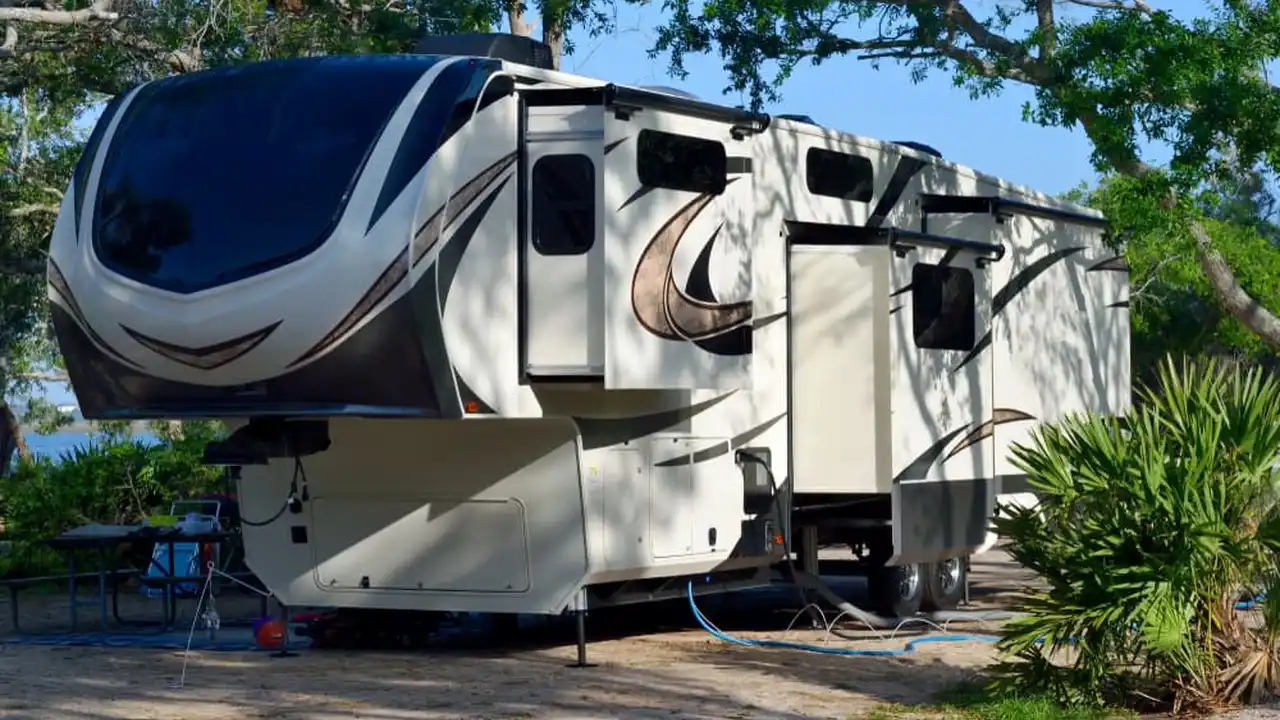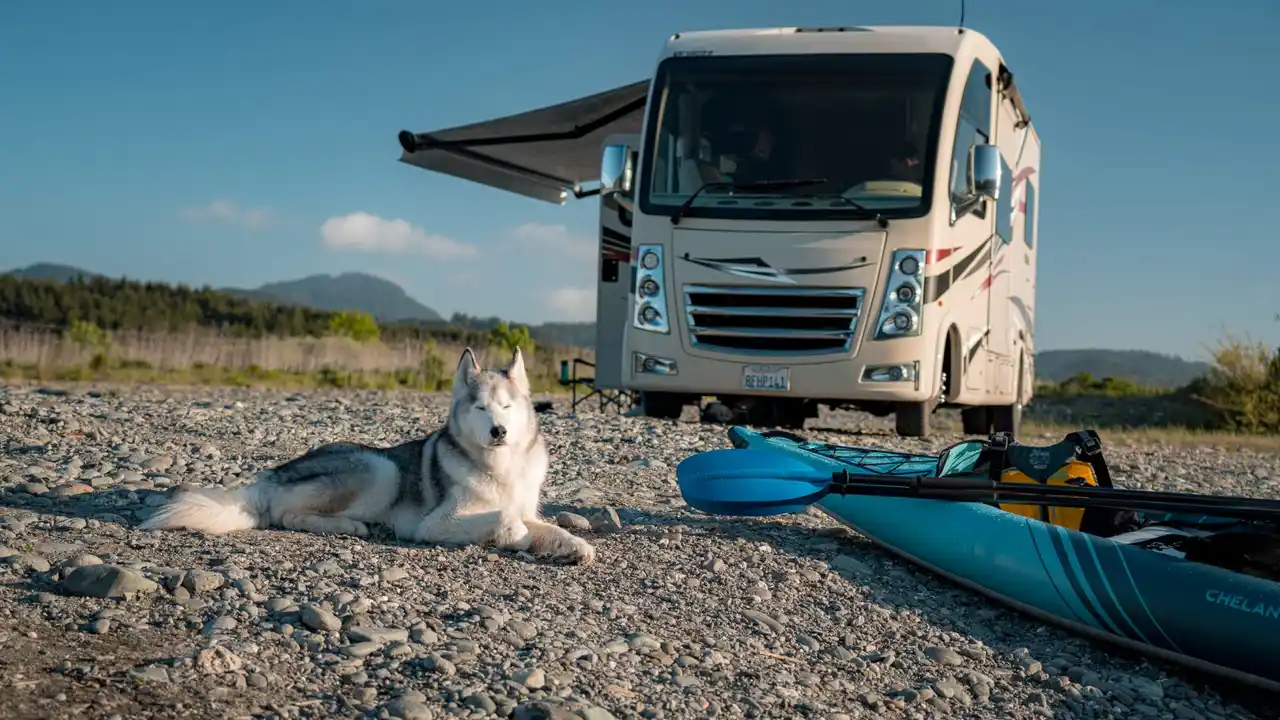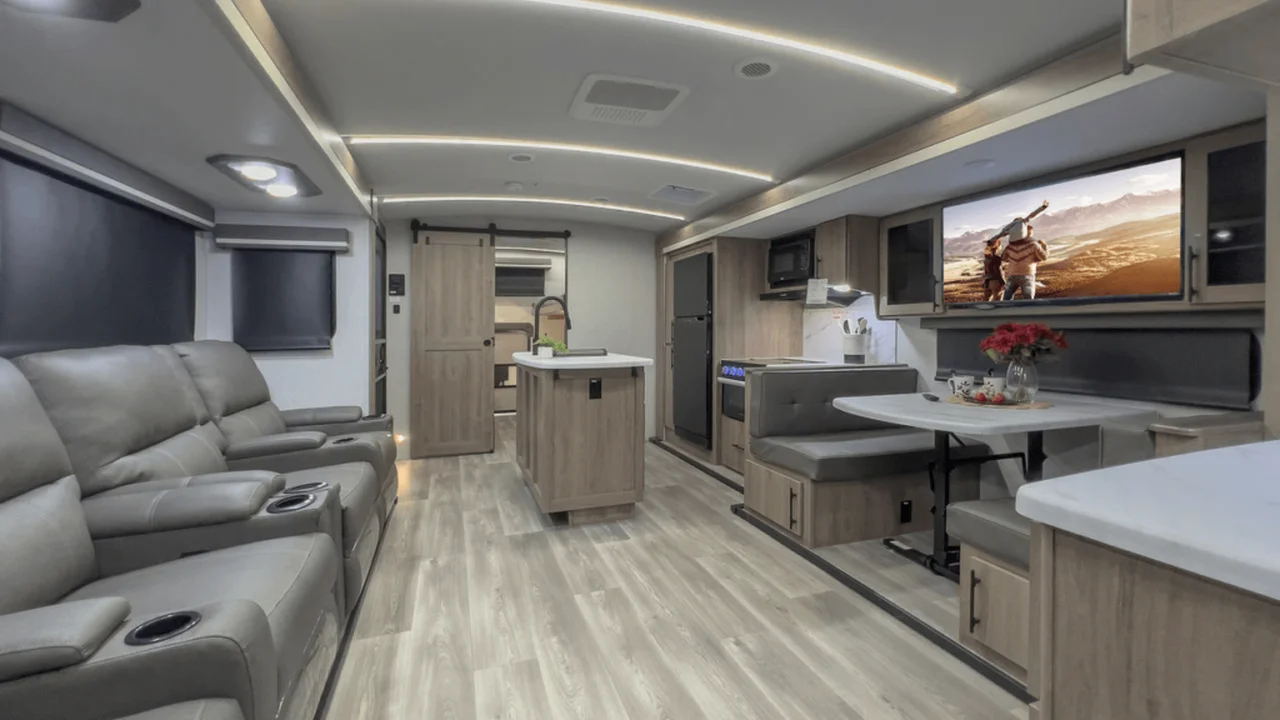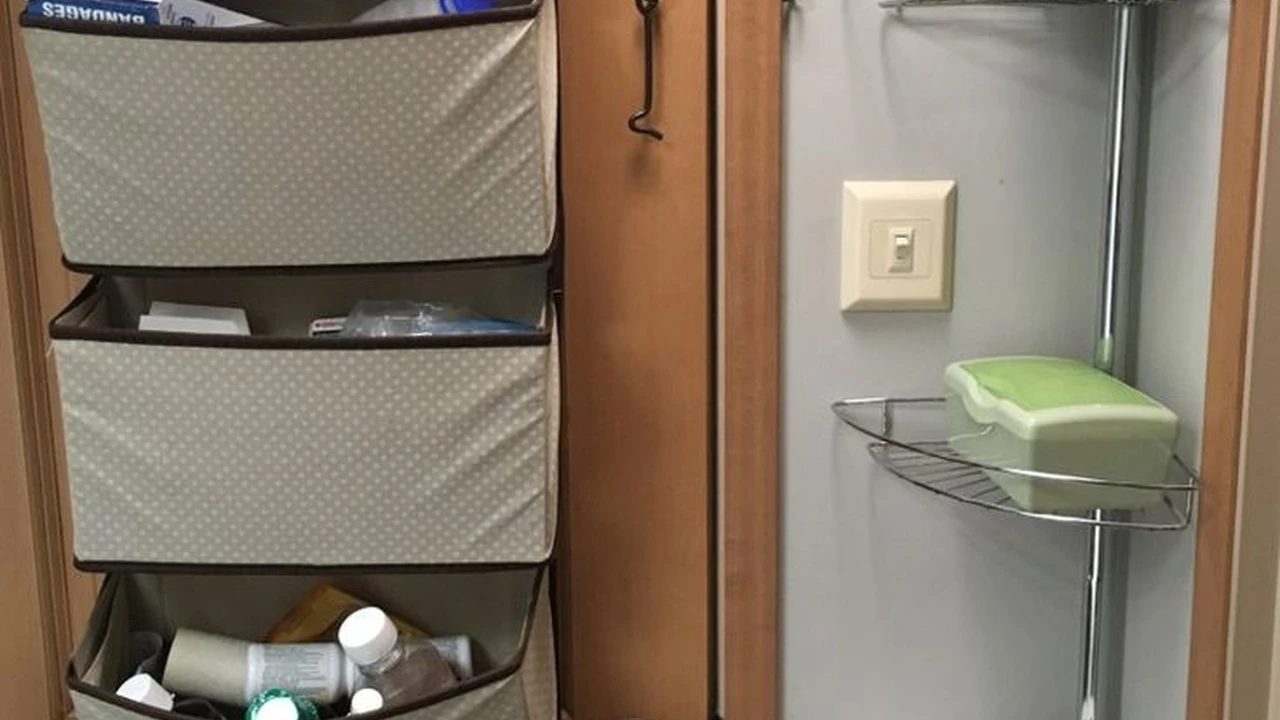RV Lemon Laws: Protecting Your Rights

Sample meta description RV water heaters are essential for comfort on the road Learn about types sizes features and maintenance to choose the best one for your needs
Understanding RV Water Heaters The Basics
Let's dive into the world of RV water heaters These unsung heroes of the road provide hot water for showers dishes and more But how do they work and what are your options?
RV water heaters are essentially smaller versions of the water heaters you find in homes They heat water using either propane electricity or a combination of both The heated water is then stored in a tank ready for use when you turn on a hot water tap
Types of RV Water Heaters
There are primarily two types of RV water heaters tank and tankless Let's break down the pros and cons of each
Tank Water Heaters
Tank water heaters are the more traditional type They heat a specific amount of water in a tank usually ranging from 6 to 10 gallons Once the water is heated it stays warm until you use it
Pros:
- Lower upfront cost
- Simpler to install and maintain
- Less demanding on electrical systems
Cons:
- Limited hot water supply
- Can run out of hot water during extended showers
- Requires time to reheat water after use
- Tank takes up space
Tankless Water Heaters
Tankless water heaters also known as on-demand water heaters heat water only when you need it They don't store water in a tank Instead they use a powerful burner to heat water as it flows through the unit
Pros:
- Unlimited hot water supply
- Space-saving design
- More energy-efficient when not in use
Cons:
- Higher upfront cost
- More complex installation
- Requires a strong propane or electrical supply
- Can have a slight delay in hot water delivery
Choosing the Right RV Water Heater Factors to Consider
Selecting the perfect RV water heater depends on your individual needs and camping style Here are some key factors to keep in mind
RV Size and Usage
The size of your RV and the number of people using the water heater will significantly impact your choice If you have a small RV and only need hot water for occasional showers a smaller tank water heater might suffice However if you have a large RV with multiple occupants a tankless water heater might be a better option
Power Source Propane vs Electric
Consider the availability of propane and electricity at your campsites If you frequently camp in areas with limited electrical hookups a propane water heater might be more practical If you have access to reliable electricity an electric or combination propane/electric water heater could be a good choice
Budget
RV water heaters range in price from a few hundred dollars to over a thousand dollars Set a budget before you start shopping and stick to it Remember to factor in installation costs as well
Space Constraints
RVs are notorious for their limited space Measure the available space for your water heater carefully before making a purchase Tankless water heaters are generally more compact than tank water heaters
Climate
If you frequently camp in cold weather you might want to consider a water heater with a higher BTU rating to ensure that the water heats up quickly and efficiently
RV Water Heater Brands and Models A Comparison
Now let's take a look at some popular RV water heater brands and models
Suburban RV Water Heaters
Suburban is a well-known and respected brand in the RV industry They offer a wide range of tank water heaters in various sizes and configurations
Suburban SW6D
The Suburban SW6D is a popular 6-gallon tank water heater that operates on propane It's a reliable and affordable option for smaller RVs
Features:
- 6-gallon capacity
- Propane-powered
- Direct spark ignition
- Durable porcelain-lined tank
Price: Approximately $200-$300
Suburban SW10DE
The Suburban SW10DE is a 10-gallon tank water heater that operates on both propane and electricity This gives you the flexibility to use either power source depending on your needs
Features:
- 10-gallon capacity
- Propane and electric powered
- Direct spark ignition
- Durable porcelain-lined tank
Price: Approximately $300-$400
Atwood RV Water Heaters
Atwood is another reputable brand that offers both tank and tankless RV water heaters
Atwood GC6AA-10E
The Atwood GC6AA-10E is a 6-gallon tank water heater that operates on both propane and electricity It features a lightweight aluminum tank that resists corrosion
Features:
- 6-gallon capacity
- Propane and electric powered
- Direct spark ignition
- Lightweight aluminum tank
Price: Approximately $350-$450
Atwood On-Demand Water Heater
Atwood also offers a tankless on-demand water heater that provides an unlimited supply of hot water It's a great option for larger RVs or those who frequently boondock
Features:
- Tankless design
- Unlimited hot water supply
- Propane-powered
- Compact size
Price: Approximately $600-$800
Girard Products RV Water Heaters
Girard Products specializes in tankless RV water heaters known for their efficiency and performance
Girard 2GWHAM Tankless Water Heater
The Girard 2GWHAM is a popular tankless water heater that provides hot water on demand It features a digital control panel and automatic freeze protection
Features:
- Tankless design
- Unlimited hot water supply
- Propane-powered
- Digital control panel
- Automatic freeze protection
Price: Approximately $800-$1000
RV Water Heater Installation A Step-by-Step Guide
Installing an RV water heater can be a challenging task but with the right tools and instructions it can be done safely and effectively However if you are not comfortable working with propane or electricity it is best to hire a qualified RV technician
Safety Precautions
Before you begin any work on your RV water heater make sure to take the following safety precautions
- Disconnect the RV from all power sources including shore power and the generator
- Turn off the propane supply to the water heater
- Allow the water heater to cool down completely before draining it
- Wear safety glasses and gloves
Tools and Materials
You will need the following tools and materials to install an RV water heater
- New RV water heater
- Wrench set
- Screwdriver set
- Pliers
- Pipe tape
- Electrical tape
- Multimeter
- Drill (if necessary)
- Hole saw (if necessary)
- Caulk
Step-by-Step Installation
- Remove the old water heater: Disconnect the water lines and propane line from the old water heater Remove the screws or bolts that hold the water heater in place Carefully slide the old water heater out of the opening
- Prepare the opening: Clean the opening and make sure it is free of debris If necessary drill new holes for the mounting screws
- Install the new water heater: Slide the new water heater into the opening Secure it with screws or bolts
- Connect the water lines: Wrap pipe tape around the threads of the water line fittings Connect the water lines to the water heater Tighten the fittings with a wrench
- Connect the propane line: Connect the propane line to the water heater Tighten the fitting with a wrench Use a leak detector to check for leaks
- Connect the electrical wiring: Connect the electrical wiring to the water heater according to the manufacturer's instructions Use electrical tape to insulate the connections
- Test the water heater: Turn on the water supply and propane supply Check for leaks Turn on the water heater and allow it to heat up Test the hot water tap to make sure hot water is flowing
RV Water Heater Maintenance Tips for Longevity
Regular maintenance is essential to keep your RV water heater running smoothly and efficiently Here are some tips to help you prolong the life of your water heater
Draining the Water Heater
Drain the water heater at least twice a year or more frequently if you camp in areas with hard water This will help remove sediment and mineral buildup that can damage the tank
Anode Rod Inspection and Replacement
The anode rod is a sacrificial metal rod that protects the water heater tank from corrosion Inspect the anode rod annually and replace it when it is significantly corroded
Flushing the Water Heater
Flush the water heater regularly to remove sediment and mineral buildup Use a water heater flush kit for best results
Checking for Leaks
Inspect the water heater and water lines regularly for leaks Repair any leaks immediately to prevent water damage
Winterizing the Water Heater
If you live in a cold climate winterize your RV water heater to prevent freezing and damage Drain the water heater and bypass it with antifreeze
Troubleshooting Common RV Water Heater Problems
Even with proper maintenance RV water heaters can sometimes experience problems Here are some common issues and how to troubleshoot them
No Hot Water
If you are not getting any hot water check the following
- Make sure the water heater is turned on
- Check the propane supply or electrical breaker
- Inspect the thermostat
- Check the high-temperature limit switch
Water Heater Not Heating Enough
If the water heater is not heating the water enough check the following
- Check the thermostat setting
- Inspect the heating element (electric water heaters)
- Clean the burner (propane water heaters)
Water Heater Leaking
If the water heater is leaking check the following
- Inspect the water lines and fittings
- Check the tank for cracks or corrosion
- Replace the pressure relief valve if necessary
Pilot Light Not Staying Lit
If the pilot light is not staying lit check the following
- Clean the pilot light orifice
- Check the thermocouple
- Adjust the pilot light flame
RV Water Heater Upgrades Enhancing Your Hot Water Experience
Looking to improve your RV hot water experience? Consider these upgrades
Tankless Water Heater Conversion
Upgrade from a tank water heater to a tankless water heater for an unlimited supply of hot water
Water Heater Insulation
Add insulation to your water heater to improve energy efficiency and reduce heat loss
Water Heater Blanket
Install a water heater blanket to further insulate the water heater and conserve energy
Digital Thermostat
Replace the analog thermostat with a digital thermostat for more precise temperature control
Water Softener
Install a water softener to reduce mineral buildup in the water heater and improve water quality
RV Water Heater Safety Tips Protecting Yourself and Your RV
RV water heaters can be dangerous if not used properly Here are some safety tips to keep in mind
Carbon Monoxide Detector
Install a carbon monoxide detector in your RV to alert you to the presence of this deadly gas
Propane Leak Detector
Install a propane leak detector to detect propane leaks
Never Modify the Water Heater
Never modify the water heater in any way This can void the warranty and create a safety hazard
Follow Manufacturer's Instructions
Always follow the manufacturer's instructions for operating and maintaining the water heater
Regular Inspections
Have your RV water heater inspected by a qualified RV technician annually
RV Water Heater Alternatives Exploring Other Options
While RV water heaters are the most common way to heat water in an RV there are some alternative options to consider
Solar Water Heaters
Solar water heaters use the sun's energy to heat water They are a great option for boondocking and reducing your carbon footprint
Portable Water Heaters
Portable water heaters are small and lightweight They are ideal for camping and other outdoor activities
Bucket Showers
Bucket showers are a simple and inexpensive way to take a shower while camping Heat water on a stove or over a campfire and pour it into a bucket with a shower head
The Future of RV Water Heaters Innovations and Trends
The RV water heater industry is constantly evolving Here are some innovations and trends to watch for
Smart Water Heaters
Smart water heaters can be controlled remotely via a smartphone app They can also learn your usage patterns and adjust the temperature accordingly
Hybrid Water Heaters
Hybrid water heaters combine the benefits of tank and tankless water heaters They offer a limited supply of hot water on demand and can switch to tank mode when needed
More Efficient Water Heaters
Manufacturers are constantly working to develop more efficient RV water heaters that use less energy and conserve water
Sustainable Materials
There is a growing trend towards using sustainable materials in RV water heaters such as recycled aluminum and bio-based plastics
:max_bytes(150000):strip_icc()/277019-baked-pork-chops-with-cream-of-mushroom-soup-DDMFS-beauty-4x3-BG-7505-5762b731cf30447d9cbbbbbf387beafa.jpg)






